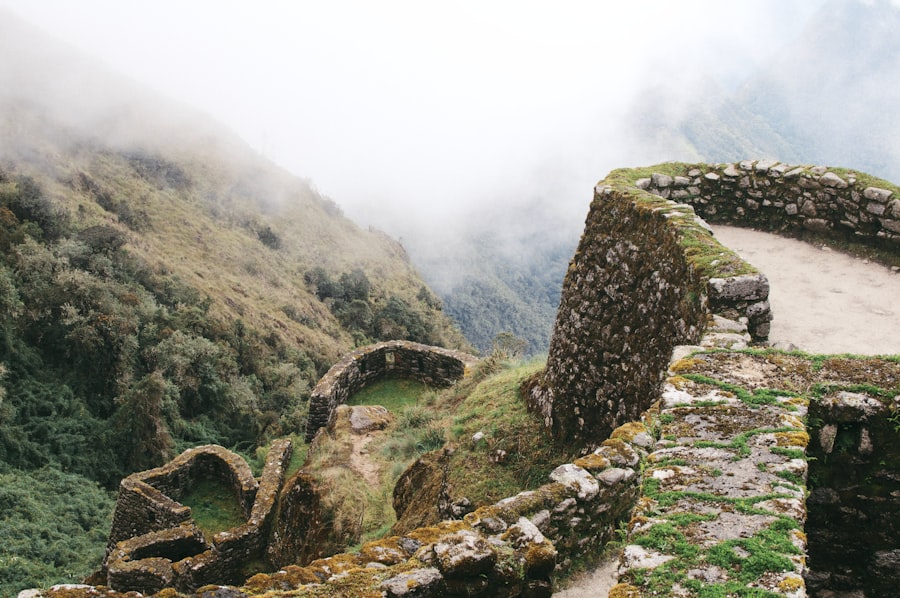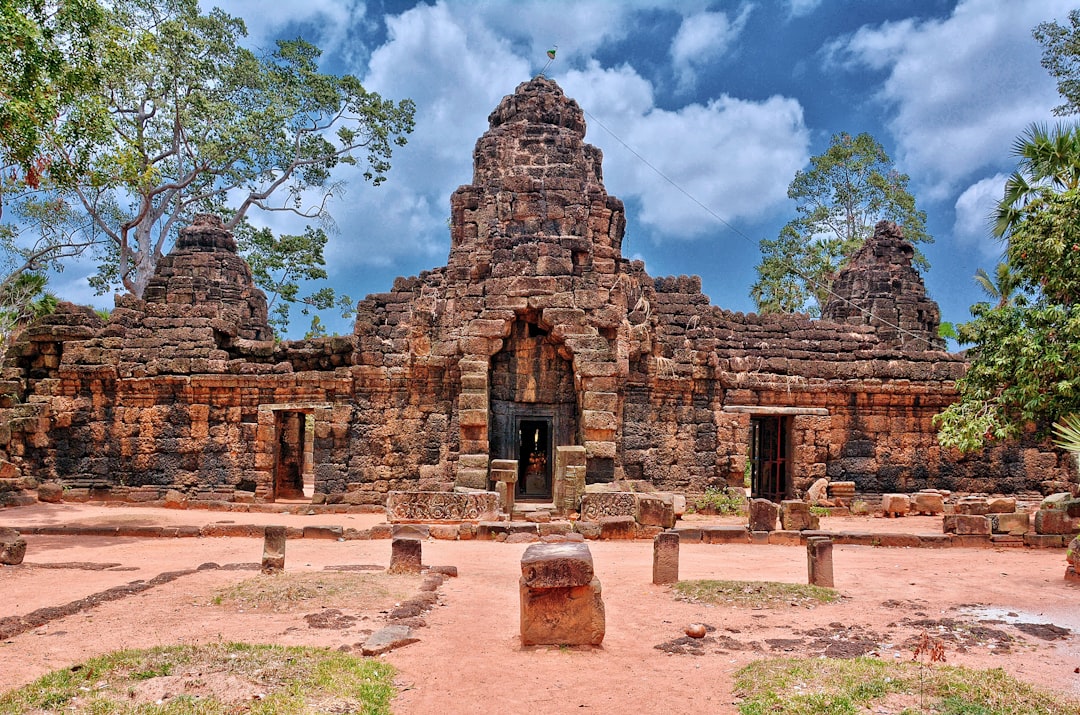Imagine stepping into a world where the past comes alive, where ancient civilizations whisper their secrets through the remnants they left behind. This is the allure of archaeology tours, a unique opportunity to traverse time and space, immersing yourself in the stories of those who walked the earth long before you. These tours offer more than just a glimpse into history; they provide a chance to connect with humanity’s shared heritage, fostering a deeper appreciation for the cultures that have shaped our world.
As you embark on an archaeology tour, you find yourself in the company of passionate guides and fellow enthusiasts, all eager to explore the mysteries of the past. Each site you visit is a portal to another era, filled with artifacts and structures that tell tales of triumphs and tribulations. From the majestic ruins of ancient cities to the subtle markings on pottery, every detail invites you to ponder the lives of those who came before.
This journey is not merely about observation; it’s about engagement, sparking curiosity and igniting a desire to learn more about the intricate tapestry of human history.
Key Takeaways
- Archaeology tours offer a fascinating glimpse into the ancient world, allowing visitors to explore and learn about different civilizations and their artifacts.
- Exploring ancient civilizations through archaeological sites provides a unique opportunity to understand the history, culture, and daily life of past societies.
- Uncovering hidden treasures during archaeological discoveries can be an exhilarating experience, offering new insights into the past and sometimes rewriting history.
- Preserving and protecting archaeological sites is crucial for maintaining the integrity of these historical treasures and ensuring they can be enjoyed by future generations.
- Archaeologists play a vital role in unearthing ancient wonders, using their expertise to study and interpret artifacts and sites, shedding light on the past.
Exploring Ancient Civilizations Through Archaeological Sites
Uncovering the Secrets of Ancient Cities
As you wander through the remnants of ancient cities like Pompeii or Machu Picchu, you can almost hear the echoes of daily life—children playing, merchants bargaining, and families gathering for meals. These sites serve as time capsules, preserving the essence of civilizations that thrived long ago.
Marveling at Ancient Achievements
Exploring these ancient civilizations allows you to appreciate their achievements and understand their challenges. You might marvel at the architectural prowess of the Egyptians as you stand before the Great Pyramids or feel a sense of wonder as you gaze upon the intricate carvings of Angkor Wat.
Gaining a Deeper Understanding of Human History
Each site offers insights into the social structures, religious beliefs, and technological advancements of its time. By immersing yourself in these environments, you gain a profound respect for the ingenuity and resilience of humanity throughout history.
Uncovering Hidden Treasures: The Thrill of Archaeological Discoveries

There’s an undeniable thrill that comes with unearthing hidden treasures from the past. Imagine standing in a dusty excavation site, surrounded by tools and brushes, your heart racing as you carefully uncover an artifact that hasn’t seen the light of day for centuries. This moment encapsulates the essence of archaeology—the excitement of discovery and the potential to rewrite history.
Each find has the power to illuminate aspects of life that were previously unknown, offering new perspectives on ancient cultures. The process of discovery is not just about finding objects; it’s about piecing together stories that have been lost to time. As you delve deeper into archaeological work, you may uncover pottery shards that reveal trade routes or inscriptions that provide insights into social hierarchies.
The thrill lies not only in what is found but also in what it signifies—a connection to our ancestors and a chance to understand their world more fully. This sense of adventure is what draws many to participate in archaeology tours, where every dig holds the promise of unveiling something extraordinary.
The Importance of Preserving and Protecting Archaeological Sites
| Importance | Reasons |
|---|---|
| Preservation of History | Archaeological sites provide valuable insights into past civilizations and cultures. |
| Scientific Research | These sites offer opportunities for researchers to study ancient technologies, social structures, and environmental changes. |
| Tourism and Education | Well-preserved sites attract tourists and provide educational opportunities for students and the public. |
| Cultural Identity | Preserving archaeological sites helps communities connect with their heritage and traditions. |
As you explore these remarkable sites, it becomes clear that preserving them is crucial for future generations. Archaeological sites are vulnerable to natural decay, urban development, and even looting. The importance of protecting these treasures cannot be overstated; they are not just remnants of the past but vital links to our collective identity.
By safeguarding these locations, we ensure that their stories continue to be told and appreciated by those who come after us. You may find yourself reflecting on your role as a visitor in this preservation effort. Responsible tourism practices can make a significant difference in protecting these sites.
Simple actions like staying on designated paths, respecting signage, and refraining from touching artifacts can help maintain the integrity of these historical treasures. By being mindful during your visit, you contribute to a larger movement aimed at preserving our shared heritage for future explorers to enjoy.
The Role of Archaeologists in Unearthing Ancient Wonders
Archaeologists are the dedicated individuals who bring ancient wonders back into focus. Their work involves meticulous planning, research, and fieldwork, often requiring years of study before they even set foot on a dig site. As you learn about their methods, you gain an appreciation for the scientific rigor behind archaeology.
These professionals employ various techniques—from carbon dating to ground-penetrating radar—to uncover layers of history buried beneath our feet. The role of archaeologists extends beyond mere excavation; they are storytellers who interpret their findings for the world to understand. Through their research, they piece together narratives that connect us with our ancestors, revealing insights into their daily lives, beliefs, and interactions with one another.
As you engage with archaeologists during your tour, you may find yourself inspired by their passion and commitment to uncovering truths about our past. Their work not only enriches our understanding but also fosters a sense of responsibility to protect these legacies.
The Impact of Archaeological Tours on Cultural Understanding and Education

Participating in archaeological tours offers more than just an educational experience; it fosters cultural understanding and appreciation. As you explore different sites around the world, you encounter diverse cultures and histories that challenge your perspectives and broaden your worldview. This exposure encourages empathy and respect for traditions that may differ from your own, creating a sense of global interconnectedness.
Moreover, these tours often include interactions with local communities who share their knowledge and stories about their heritage. Engaging with these individuals allows you to see history through their eyes, deepening your understanding of how past events shape contemporary life. This exchange enriches your experience and highlights the importance of preserving cultural narratives that might otherwise be overlooked.
By participating in archaeological tours, you become an ambassador for cultural appreciation, carrying these lessons back into your everyday life.
The Top Archaeological Sites to Visit Around the World
As you plan your next adventure, consider visiting some of the world’s most iconic archaeological sites that promise unforgettable experiences. The Pyramids of Giza stand as a testament to ancient Egyptian ingenuity and are a must-see for any history enthusiast. Similarly, the ruins of Petra in Jordan offer breathtaking architecture carved into rose-red cliffs, inviting exploration and wonder.
In South America, Machu Picchu captivates visitors with its stunning mountain backdrop and intricate Incan engineering. Meanwhile, Stonehenge in England presents an enigmatic glimpse into prehistoric rituals and beliefs. Each site has its own unique charm and significance, making them essential stops on your archaeological journey.
By visiting these locations, you not only witness history firsthand but also contribute to their preservation through responsible tourism practices.
Tips for Planning an Unforgettable Archaeology Tour Experience
To ensure your archaeology tour is truly unforgettable, consider a few key tips as you plan your adventure. First and foremost, do your research on the sites you wish to visit. Understanding their historical context will enhance your experience and allow you to engage more deeply with what you see.
Look for guided tours led by knowledgeable archaeologists or historians who can provide valuable insights along the way. Additionally, pack appropriately for your journey—comfortable shoes are essential for exploring uneven terrain, while sun protection will keep you safe during long days outdoors. Don’t forget to bring a journal or sketchbook; documenting your thoughts and observations can enrich your experience and serve as a cherished keepsake from your travels.
Finally, approach each site with an open mind and heart. Allow yourself to be moved by the stories these places hold and embrace the connections you make with fellow travelers and local communities. By immersing yourself fully in this experience, you’ll create lasting memories that will inspire your appreciation for archaeology long after your tour concludes.
In conclusion, archaeology tours offer a captivating journey through time that enriches your understanding of human history while fostering cultural appreciation. As you explore ancient civilizations and uncover hidden treasures, remember the importance of preserving these sites for future generations. With each step taken on this path of discovery, you contribute to a greater narrative—one that connects us all through our shared heritage.
